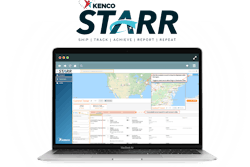
Synergistic technologies like predictive analytics, automation, real-time tracking, machine learning, artificial intelligence (AI) and blockchain will continue to evolve for greater flexibility, improved customer support and enhanced forecasting capabilities, according to research presented by ABI Research.
In fact, worldwide transportation management system (TMS) revenues are expected to nearly double from $16 billion in 2020 to over $31 billion in 2025.
“There is growing usage of open APIs and software development kits (SDKs) to create customized solutions for different sized companies, verticals and geographies as well as partners and co-opetition,” says Susan Beardslee, principal analyst, freight transportation and logistics, ABI Research. “Adoption triggers include capacity constraints, which are growing ever tighter (including driver shortages back to 2018 levels) and pushing up costs toward the double-digits. Beyond that, consumers and businesses continue to push for more granularity in answering, “where’s my stuff?” with an ETE, real-time response.”
From ABI Research
- Supply chain leaders across all verticals need to adopt a more advanced and inclusive approach to forecasting and adapting to a continually changing environment.
- A growing list of cloud-based software vendors is offering AI and advanced analytics capabilities to help companies interpret data from many complex indicators and execute more insightful and connected strategies.




















